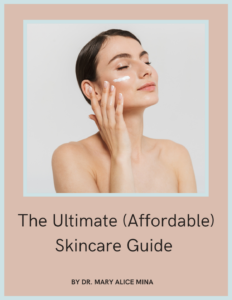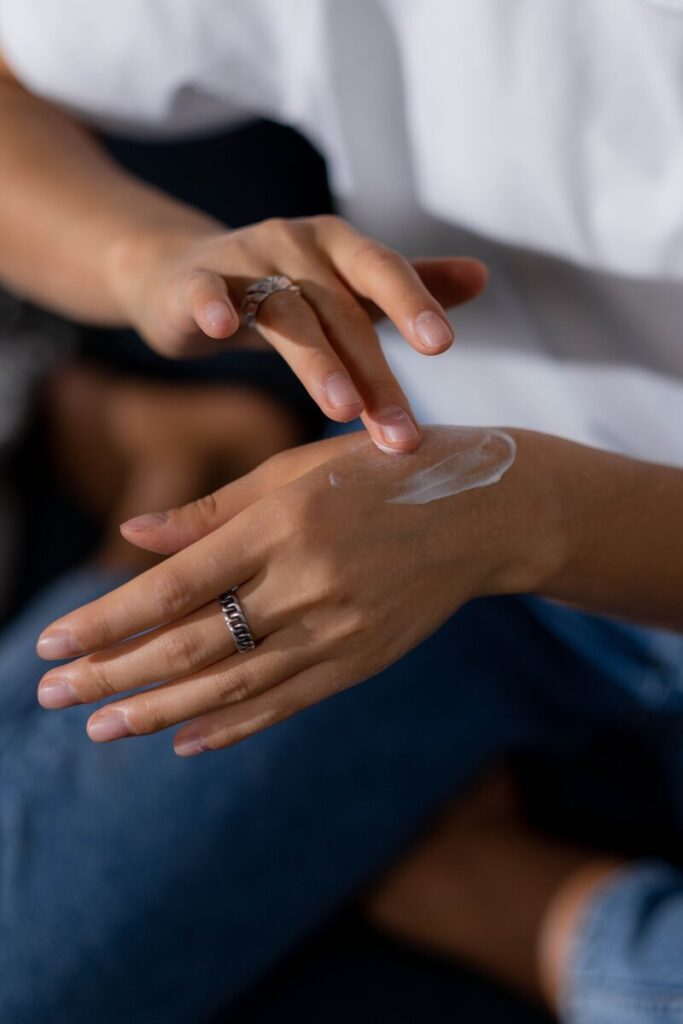Did you know that in the U.S., over 40% of people identify as ‘skin of color’ (SOC)? And by 2050, that number is projected to be over 50% of the U.S. population! So, it’s time that skincare and skin health keeps up with the diverse shades of skin out there!
SOC refers to individuals with more melanin (aka pigment) in their skin. For a really long time (think hundreds of years), medical research and studies focused on more western European or Caucasian skin. Even dermatology textbooks rarely showed images of skin conditions in non-Caucasian skin! This led to confusion and delayed diagnoses for many individuals with more melanin in their skin. Fortunately, things are changing and evolving to keep up with our current population… finally! But there are lots of misconceptions out there about treatments that are safe, and unsafe for SOC, so let’s dive deeper into this topic!
What are some misconceptions about SOC?
1) You don’t need sunscreen if you have darker skin.
Here’s the scoop: everyone needs to get on board with sun protection, even if you’ve got a bit more melanin in your skin. Even the darkest skin shades only provide about an SPF of 14 naturally, which isn’t enough to shield you from those sneaky UV rays. The good news is there are tons of sunscreens out there now that won’t leave that white, chalky residue on the skin. It might take a bit of trial and error to find one you like, but it’s totally worth it for the protection it offers.
Pro tip: if you’re dealing with melasma, go for a tinted mineral sunscreen for max protection against UVA and visible light. Your skin will thank you!
2) You can’t get skin cancer if you have SOC!
It’s a common belief among some of my SOC patients that having SOC means you’re safe from skin cancer. But let me tell you, that’s just not the case. Sure, people with lighter skin might have a higher risk, but skin cancer doesn’t care what color your skin is. Take the tragic case of Bob Marley, for example. He had a melanoma on his toe, initially brushed off as a soccer injury and bruise. By the time it was properly diagnosed, it was too late. This delay in diagnosis is something I see too often in SOC cases, leading to more advanced cancer stages. It’s time to debunk the myth that SOC individuals are exempt from skin cancer. Regardless of your skin type, any new, dark, growing, or painful lesion should be checked out by a dermatologist.
Pro tip: Did you know that acral melanomas on the palms and soles are more common in SOC? That’s why a thorough skin exam should always include a close look in these areas!
3) You can’t get laser procedures if you have SOC.
Unfortunately, the FDA doesn’t make laser and device companies test their products on darker skin types (skin phototypes 5 and 6). This makes it hard to know which devices are safe for people with darker skin. Based on what laser experts know, machines that produce heat can cause skin problems like dark spots or light spots, especially for people with darker skin. But now, we understand that some types of lasers are safer for darker skin, and if we adjust the settings accordingly, they can work well without causing harm.
If you have darker skin, it’s important to see a provider who has familiarity in treating darker skin. This doesn’t guarantee you won’t have skin issues, but at least you’ll be in good hands if there is a complication. Trying out a small test area first can help, but it might not prevent all problems. While some devices typically are a no-go for darker skin, many devices can be safely used as long as the settings are correctly selected.
This week on the podcast, I discuss skincare and procedures in SOC with my colleague, Dr. Tia Paul, who sheds her insight and expertise as a dermatologist well-versed in treating a diverse range of skin types!
Find Dr. Paul here:
https://www.instagram.com/dr.tiapaul/
A new podcast episode drops every Monday!
For more great skin care tips, subscribe to The Skin Real Podcast.










